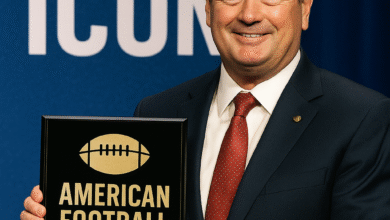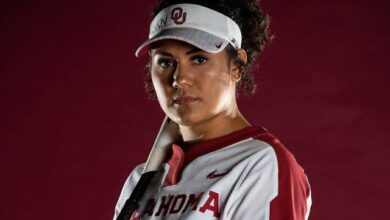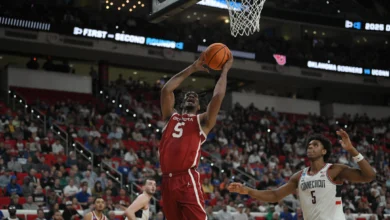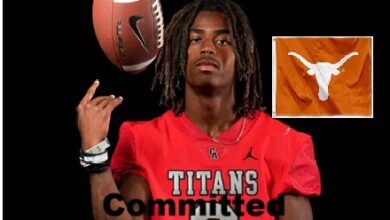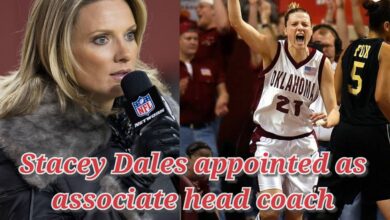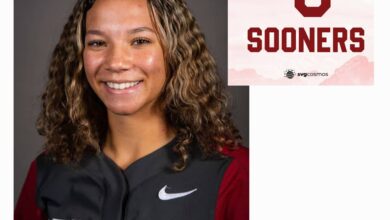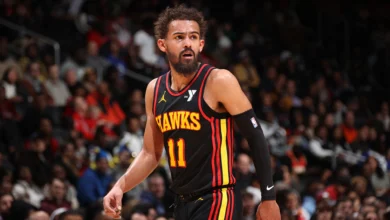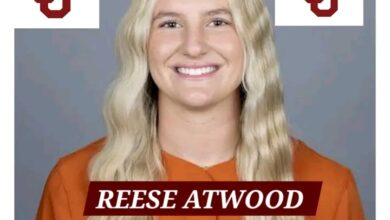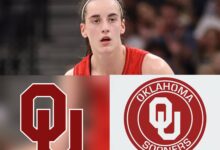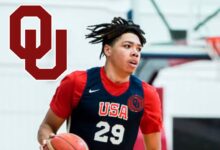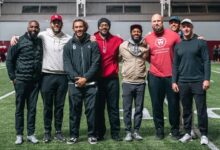Oklahoma Softball Star Ella Parker Breaks Silence with Devastating Announcement
An Emotional Moment Sends Shockwaves Through the Sooners Softball Community
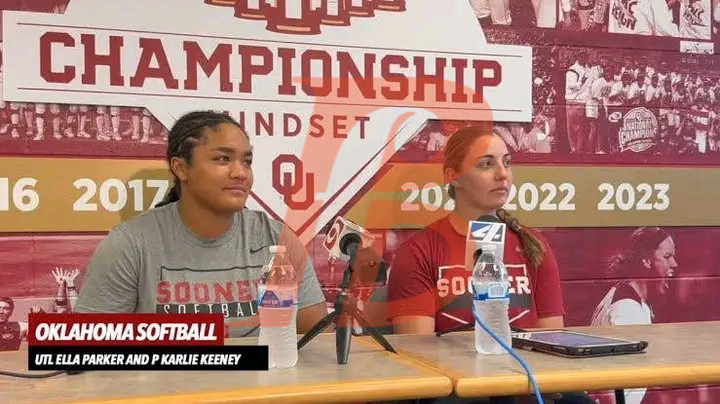
Oklahoma Softball Star Ella Parker Breaks Silence with Devastating Announcement
An Emotional Moment Sends Shockwaves Through the Sooners Softball Community
Introduction: A Stunning Revelation from One of Oklahoma’s Brightest Stars
The Oklahoma Sooners softball program has long been a powerhouse in collegiate athletics, known not just for its championships but for the players who have built a dynasty brick by brick. Among those athletes, Ella Parker stood out as one of the brightest young stars—a rising icon with incredible talent, grit, and the ability to lead both on and off the field. But on a day that began like any other in Norman, the softball world was rocked by a heartfelt and devastating announcement from Parker herself.
Breaking her silence, Ella Parker addressed fans, teammates, and the broader softball community with an emotional message that revealed a life-changing development in her career and personal journey.
Ella Parker: A Star in the Making
Before diving into the news that has shaken Oklahoma fans to their core, it’s important to recognize who Ella Parker is and what she represents.
A California native with a smooth left-handed swing and unmatched field awareness, Parker came to Oklahoma with the promise of being the next great star in a long line of elite players. As a freshman, she lived up to every expectation, delivering clutch hits, making acrobatic plays in the outfield, and most importantly, playing with an infectious passion that made her a fan favorite.
Her freshman campaign saw her rack up impressive stats—batting over .350, delivering home runs in key moments, and providing highlight-reel defense. Beyond the numbers, her presence in the dugout, her leadership, and her relentless spirit defined the Sooners’ culture of excellence.
The Announcement: Ella Parker Speaks Out
In a deeply emotional video shared on her social media platforms, Ella Parker broke her silence and confirmed what many had feared but few expected: she will be stepping away from the sport of softball—at least for now.
“This is one of the hardest things I’ve ever had to do,” Parker began, her voice trembling. “Softball has been my life since I was a little girl. But sometimes, life throws you a curveball you didn’t see coming.”
Parker did not go into great detail about the personal reasons behind her decision but emphasized that the decision was not made lightly. Through tears and with palpable pain, she explained that circumstances beyond her control had forced her to re-evaluate her future.
“I need time. Time to heal, to grow, to rediscover who I am outside of this game I love so much,” she said.
Reactions Pour In: A Community in Shock
Almost immediately after her announcement, tributes, support, and words of love began pouring in from every corner of the softball world. Teammates, coaches, fans, and even rival programs shared heartfelt messages in solidarity with Parker.
Head Coach Patty Gasso, who has mentored countless stars during her historic run at Oklahoma, issued a statement praising Parker for her courage and strength:
“Ella is not just a tremendous athlete—she’s a tremendous human being. Her strength in the face of adversity is inspiring. We will always support her, whatever path she chooses.”
Current and former teammates echoed similar sentiments, sharing personal anecdotes and calling Parker a “sister,” a “warrior,” and “one of the best to ever wear the crimson and cream.”
The Timing: A Devastating Blow for a Team with Championship Aspirations
The announcement comes at a critical juncture in the Sooners’ season. Ranked among the top programs in the nation and riding high on momentum, Oklahoma had been seen as a front-runner to win another national championship. Parker’s absence leaves a significant void—not only statistically, but emotionally and psychologically.
Her ability to deliver in clutch moments had made her a go-to option for the Sooners. With postseason play approaching, questions now swirl about how the team will respond to this setback.
Nevertheless, Coach Gasso has built a culture of resilience in Norman. While Parker’s absence is a blow, the coaching staff and the players are expected to rally around one another, channeling their emotions into unity and focus.
What’s Next for Ella Parker?
While Parker was clear that this isn’t necessarily the end of her softball career, it is an indefinite pause. She mentioned a desire to focus on her mental and physical health, to reconnect with her family, and to explore other dimensions of her identity beyond the diamond.
“For the first time in my life, I’m putting myself before the game,” she said. “And I hope people can understand that.”
There is no timeline for her return. And while some fans hope this is just a brief sabbatical, others acknowledge the gravity of her words and the possibility that Parker may never don the Oklahoma jersey again.
Still, many believe this is not a farewell but rather a necessary detour in what could still be a historic career.
Mental Health in Collegiate Athletics: A Broader Conversation
Parker’s announcement also sheds light on the growing awareness of mental health challenges facing student-athletes today. As much as fans see the wins, the home runs, and the trophies, what often goes unseen is the pressure, the expectations, and the constant demand for perfection.
Her courage in speaking out echoes similar decisions made by other high-profile athletes, including Simone Biles, Naomi Osaka, and college stars across sports who have stepped back from competition for their well-being.
In some ways, Parker is following a brave path that continues to redefine what strength looks like in athletics—not just the ability to compete, but the wisdom to walk away when necessary.
Legacy Still Unwritten
Though the softball world might not see Ella Parker on the field this spring or even this year, her story is far from over. If and when she returns, it will be on her own terms. But even if she never takes another at-bat, her legacy is already etched into the fabric of Oklahoma softball.
“Once a Sooner, always a Sooner,” she said with a tearful smile to close her video message. “Thank you for everything. I’ll love this program forever.”
And the fans will undoubtedly love her back—forever.
Final Thoughts: A Moment That Transcends Sports
Ella Parker’s announcement is a reminder that behind every jersey number is a person, with hopes, struggles, dreams, and challenges. Her honesty and vulnerability in the face of adversity will be remembered just as much as her talent and fire on the field.
This is more than just a loss for the Oklahoma Sooners; it’s a moment that brings the entire sports community together in empathy, respect, and support. Whether this chapter ends with a comeback or not, Ella Parker has already shown the world what it means to be a true champion.
And in the hearts of Sooners fans everywhere, she will always be one.

